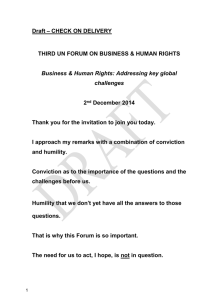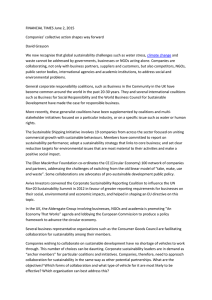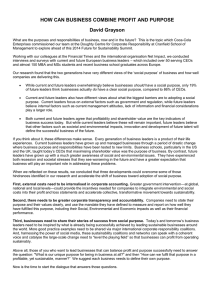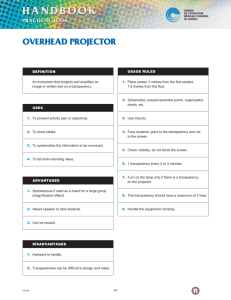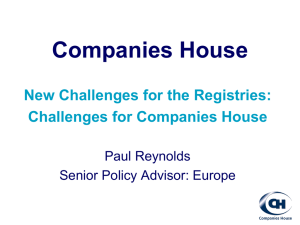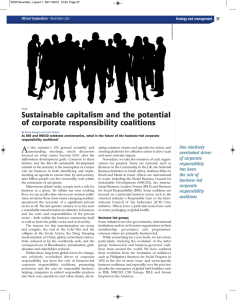collaboration SMaRtER >>
advertisement
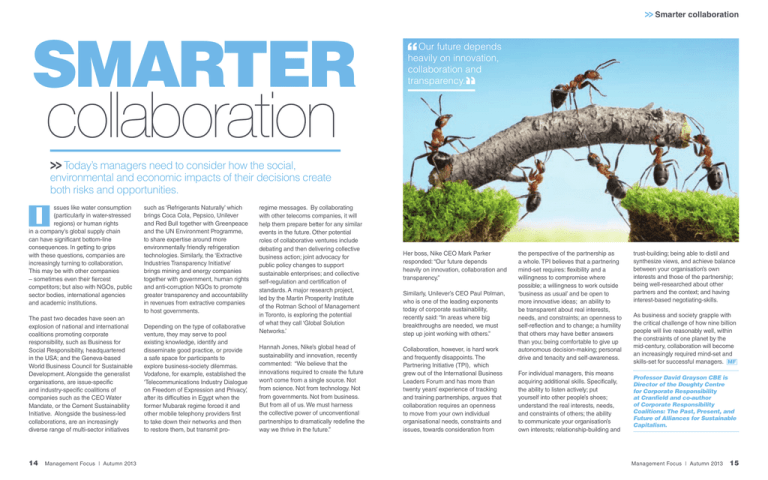
>> Smarter collaboration Smarter collaboration Our future depends heavily on innovation, collaboration and transparency. >> Today’s managers need to consider how the social, environmental and economic impacts of their decisions create both risks and opportunities. I ssues like water consumption (particularly in water-stressed regions) or human rights in a company’s global supply chain can have significant bottom-line consequences. In getting to grips with these questions, companies are increasingly turning to collaboration. This may be with other companies – sometimes even their fiercest competitors; but also with NGOs, public sector bodies, international agencies and academic institutions. The past two decades have seen an explosion of national and international coalitions promoting corporate responsibility, such as Business for Social Responsibility, headquartered in the USA; and the Geneva-based World Business Council for Sustainable Development. Alongside the generalist organisations, are issue-specific and industry-specific coalitions of companies such as the CEO Water Mandate, or the Cement Sustainability Initiative. Alongside the business-led collaborations, are an increasingly diverse range of multi-sector initiatives 14 Management Focus | Autumn 2013 such as ‘Refrigerants Naturally’ which brings Coca Cola, Pepsico, Unilever and Red Bull together with Greenpeace and the UN Environment Programme, to share expertise around more environmentally friendly refrigeration technologies. Similarly, the ‘Extractive Industries Transparency Initiative’ brings mining and energy companies together with government, human rights and anti-corruption NGOs to promote greater transparency and accountability in revenues from extractive companies to host governments. Depending on the type of collaborative venture, they may serve to pool existing knowledge, identify and disseminate good practice, or provide a safe space for participants to explore business-society dilemmas. Vodafone, for example, established the ‘Telecommunications Industry Dialogue on Freedom of Expression and Privacy’, after its difficulties in Egypt when the former Mubarak regime forced it and other mobile telephony providers first to take down their networks and then to restore them, but transmit pro- regime messages. By collaborating with other telecoms companies, it will help them prepare better for any similar events in the future. Other potential roles of collaborative ventures include debating and then delivering collective business action; joint advocacy for public policy changes to support sustainable enterprises; and collective self-regulation and certification of standards. A major research project, led by the Martin Prosperity Institute of the Rotman School of Management in Toronto, is exploring the potential of what they call ‘Global Solution Networks.’ Hannah Jones, Nike’s global head of sustainability and innovation, recently commented: “We believe that the innovations required to create the future won’t come from a single source. Not from science. Not from technology. Not from governments. Not from business. But from all of us. We must harness the collective power of unconventional partnerships to dramatically redefine the way we thrive in the future.” Her boss, Nike CEO Mark Parker responded: “Our future depends heavily on innovation, collaboration and transparency.” Similarly, Unilever’s CEO Paul Polman, who is one of the leading exponents today of corporate sustainability, recently said: “In areas where big breakthroughs are needed, we must step up joint working with others.” Collaboration, however, is hard work and frequently disappoints. The Partnering Initiative (TPI), which grew out of the International Business Leaders Forum and has more than twenty years’ experience of tracking and training partnerships, argues that collaboration requires an openness to move from your own individual organisational needs, constraints and issues, towards consideration from the perspective of the partnership as a whole. TPI believes that a partnering mind-set requires: flexibility and a willingness to compromise where possible; a willingness to work outside ‘business as usual’ and be open to more innovative ideas; an ability to be transparent about real interests, needs, and constraints; an openness to self-reflection and to change; a humility that others may have better answers than you; being comfortable to give up autonomous decision-making; personal drive and tenacity and self-awareness. For individual managers, this means acquiring additional skills. Specifically, the ability to listen actively; put yourself into other people’s shoes; understand the real interests, needs, and constraints of others; the ability to communicate your organisation’s own interests; relationship-building and trust-building; being able to distil and synthesize views, and achieve balance between your organisation’s own interests and those of the partnership; being well-researched about other partners and the context; and having interest-based negotiating-skills. As business and society grapple with the critical challenge of how nine billion people will live reasonably well, within the constraints of one planet by the mid-century, collaboration will become an increasingly required mind-set and skills-set for successful managers. MF Professor David Grayson CBE is Director of the Doughty Centre for Corporate Responsibility at Cranfield and co-author of Corporate Responsibility Coalitions: The Past, Present, and Future of Alliances for Sustainable Capitalism. Management Focus | Autumn 2013 15
